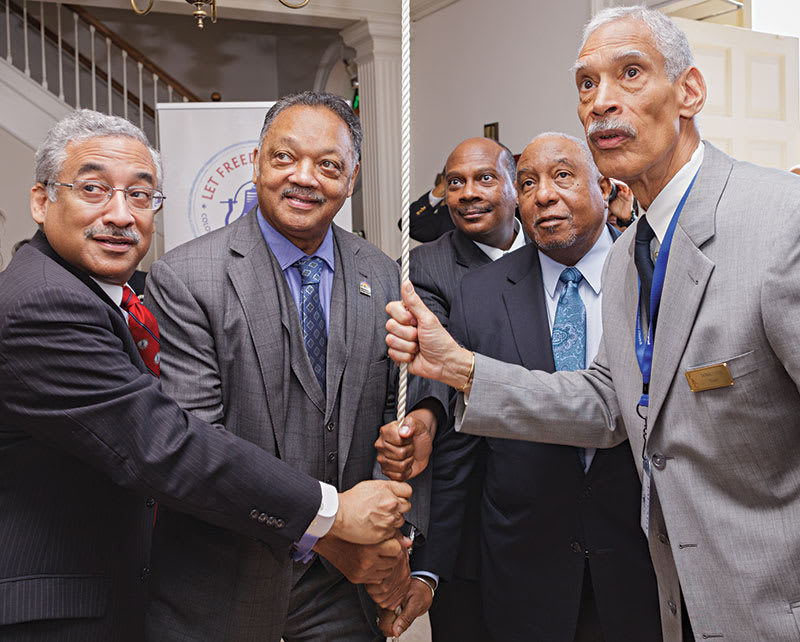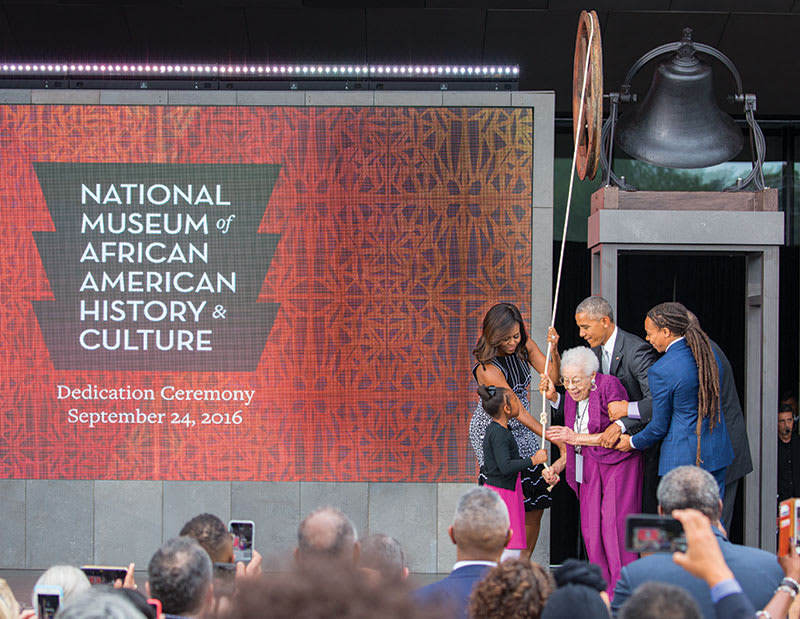First Baptist Church of Williamsburg began as a secret.
Free and enslaved African Americans gathered — an illegal act in 1776 — under a brush arbor at Greenspring Plantation to share in song and prayer.
We don't know all of their names. We don't know the full extent of their circumstances. But now the country knows their story as a brave congregation that forged a spiritual path as the Nation's first black Baptist church organized by African Americans, for African Americans.
President Barack Obama's speech at the dedication of the Smithsonian's National Museum of African American History and Culture in September placed Williamsburg's First Baptist Church's story in the national spotlight.

Obama then joined first lady Michelle Obama and four generations of a family descended from slaves to mark the museum's opening with the ringing of the church's Freedom Bell. The Colonial Williamsburg Foundation helped restore the bell for the historic church's 240th anniversary earlier this year so it could sound for the first time since segregation.
The bell's toll at the museum's dedication initiated the peal of church bells throughout Washington, D.C., and across the Nation — "an echo of the ringing bells that signaled emancipation more than a century and a half ago; the sound, and the anthem, of American freedom," Obama said.
First Baptist Church's story is not just significant African American history. Its formation as Williamsburg's first Baptist church — one that included white congregants who wished to practice the Baptist faith — pushed the Colonies closer to the American ideal of religious freedom.
Three days before the museum's dedication, First Baptist Church and the Foundation hosted a dedication of their own. A bus filled with church congregants and Foundation employees followed the bell from Williamsburg to D.C. to offer a blessing ahead of the ceremony.

The church's original leader, the Rev. Gowan Pamphlet — interpreted in the Historic Area by James Ingram — joined the Rev. Reginald F. Davis, the current pastor, in a ceremony to bless the bell and honor its connection to the church.
Ingram, as Pamphlet, preached about the importance of what he called "monuments of remembrance." He pointed to landmarks along the National Mall that are visible from the museum's entrance and said learning humanity's story starts with asking "from whence you came."
"This bell has become a symbol of remembrance," he said. "When your children ask you what (does) this bell mean, you can tell them it's to ring for the healing of this country, for all the wounds, for all the cries, for all those imprisoned incorrectly, for all those who have been wounded incorrectly, wronged by the system that should be justice, liberty for all."
The bell dates to 1886, when a women's church group raised money to buy it. Eventually, it fell into disrepair and remained silent for more than 50 years.
"The Women's Auxiliary, they had no idea that this bell would take on national prominence, and that's just to say that what we do today will have far-reaching consequences in the future," Davis said.
Davis invited the public to Williamsburg to ring the bell as part of the Let Freedom Ring Challenge, an initiative that began in February 2016 as a statement to confirm a belief in freedom and equality.
"We pray and hope that this bell will be a symbol, that it will ring throughout the Nation to remind us that from one blood that God made all nations of people and that God is our God and we are all kin, whether we like it or not," Davis said.